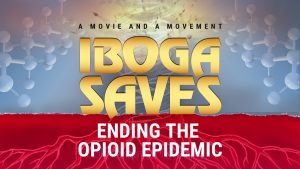How does IBOGA work in a single treatment when traditional rehab and therapies fail? The answer is simple. It gets to the root cause. In the opinion of addiction expert Dr. Gabor Maté, who has worked with hundreds of addicts in the course of his practice, addiction is an attempt to self-medicate some underlying trauma caused by childhood neglect, abuse, or other adversity.
“Addiction is neither a disease nor a choice,” says expert Dr. Gabor Mate. If you ask an addict why they are pursuing their addictive behavior, whatever it happens to be, they’ll say, “It distracts me, it numbs me, it makes me feel better.” The addiction is not a primary problem. It’s an attempt to self-medicate. The question to ask is not why the addiction, but why the pain?
How does exposure to adversity affect the developing brains and bodies of individuals?The Adverse Childhood Experiences Study (ACE Study) is a research study conducted by the American health maintenance organization Kaiser Permanente and the Centers for Disease Control and Prevention. The higher your ACE score the greater your health risks. We now understand better than we have before, how exposure to early adversity affects individuals. It affects many areas of the brain including those that control substance abuse. There are real neurological reasons why people exposed to highly adverse experiences are more likely to engage in high-risk behavior.
What is IBOGA?
Iboga Tabernathe is a root bark that originates in West Africa that contains the alkaloid ibogaine, which has the property of interrupting opioid addiction and eliminating withdrawal in a single treatment. It has been misclassified in the US as a schedule 1 drug with no medical value, when in fact it could save lives being lost to overdose.
Life is Suffering.
“Life is suffering,” as the Buddha said. An IBOGA treatment expands one’s consciousness in the course of an introspective inner journey in order to be able to relive, reconcile, and heal the suffering and trauma that is an inevitable part of life. With proper medical oversight, guidance, preparation, set, setting, and intention, one becomes one’s own doctor and metaphysician, accessing the healer within. Each one of us has this potential of awakening to a higher, better, more coherent version of oneself, and this is the psycho-spiritual transformation wrought by IBOGA, and other such substances. Plant medicines like IBOGA are called “entheogens” for a reason. They generate the “theo” (god in Latin) within. No matter what one’s religious beliefs may be, there exists an inner dimension to one’s relationship with self that is only accessible through altering one’s consciousness by any means or molecule. It is the doorway to direct experience. Plant medicines like IBOGA act as synergistic alchemical doorways that are instrumental to us being able to deal with the shadows and traumas of life on the psychological and spiritual level where the wound originates.
Not a recreational drug. A powerful medicine for addiction and trauma.
Evidence confirms that there is nothing recreational about an IBOGA treatment. The experience lasts up to 32 hours and is an in-patient procedure, either in a clinic or in a retreat center. Either way, trained medical staff should incorporate monitoring of vitals along with preparation and aftercare. While it works on a physiological level to repair brain tissue and neurons, on a psycho-spiritual level, IBOGA often presents one with a starkly honest “life review” that allows one to understand the roots of one’s illness or dis-ease. For a person struggling for years with opioid addiction, it’s as though they have become their own analyst, empowered to understand and transform years of dysfunction.
IBOGA jump starts a paradigm shift. It’s up to you to integrate it.
The ibogaine metabolite remains in the system for three months. During this time, a recovering opioid addict must put forth their best and most serious effort to integrate the teachings and opportunity provided by ibogaine, and to change the other habits or behaviors entrained by years of addiction. Common ones are lying, stealing, and manipulating others. It begins fundamentally with self-honesty. For the interruption provided by IBOGA to become the permanent end of the addiction requires massive life change on all levels, and for this, the recovering addict often needs assistance to make a plan and stay accountable to it. This person or guide might be a family member or a professional, like an integration coach or therapist, and sometimes involves a post-treatment stay in a clinic. But no matter what kind of assistance you get, as an addict, it is your journey, and you are the wounded healer.
A Return to the Root
The IBOGA experience is a return to the root, not just the root cause of one’s problems, but the root source of one’s strength. This makes it a gift to humanity, especially during an opioid epidemic. However, because of its legal status few people have even heard of it, medical research is stymied, and people are forced to travel internationally to access it. We aim to remedy this grave situation by creating a movie and a movement called IBOGA SAVES to spread the word and change the law.
WARNING: RISKS & CONTRAINDICATIONS
excerpted from the Global Ibogaine Therapy Alliance
It is crucial that patients with childhood congenital heart defects, prolonged QT intervals, a history of heart failure, enlarged heart, any history of blood clots, stroke, transient ischemic attacks, pulmonary embolism, deep vein thrombosis, or irregular heart rhythms do not attempt to take ibogaine because of these risks. Other pre-existing heart conditions should be carefully examined and a risk/benefit assessment taken into consideration. Read complete post about safety considerations here.

